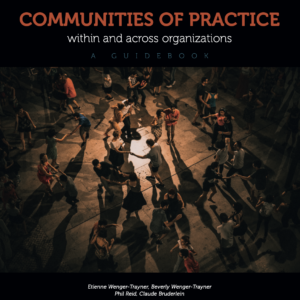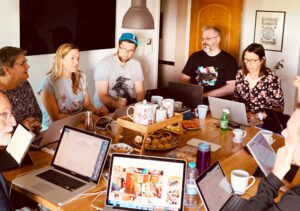NOTICE: There is an updated version of all these FAQs on our new website:
What about power? Wouldn’t communities become a threat to the organizational hierarchy?
Existing across an organization’s formal structures, communities of practice rarely derive much power directly from positions in formal hierarchies. But communities do not usually seek positional power, with its control over resources and accountability for investments—tasks for which communities are not well suited. They do seek the power of voice, however: the power to be heard, to make a difference, and to have their practice-based perspective matter. In the knowledge economy, the power of voice becomes just as important as the power of position. In an organization where the power of voice is acknowledged, managers would routinely ask: “Have you checked with your community about this? What was their reaction?” The one time we saw a community really angry was an occasion when its opinion had not been sought. The company had gone ahead with an acquisition in the domain of the community and the acquisition had not turned out well. Members of the community’s core group were furious that their community had not been consulted. The community, they were certain, could have foreseen the problems. Interestingly, they were not asking for the responsibility to make the final decision. They did not care for the politics associated with such responsibility. But they wanted their voice to be included in the debate. Executives who sponsor communities bridge between these two forms of power. A sponsor uses positional power to help communities find a voice in the organization. This integrating function is a new and sometimes uneasy role for executives to assume, because it does not identify power with control. Still it is a critical role, whose importance will increase with the growing emphasis on knowledge—and with it on the power of voice.| << What about tasks and expectations? | If knowledge is power, why would anyone want to share it? >> |
For more information, click here:
For a more precise definition, see our theory page on communities of practice:
For a bit more info, see our general (but brief) introduction to communities of practice and their use in various contexts:
For practical advice on cultivating communities of practice, see our new guidebook:
For workshops on cultivating communities of practice:


